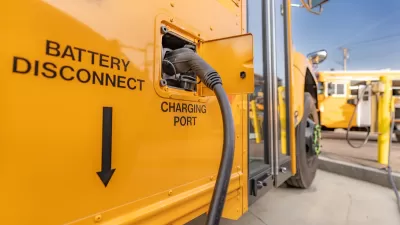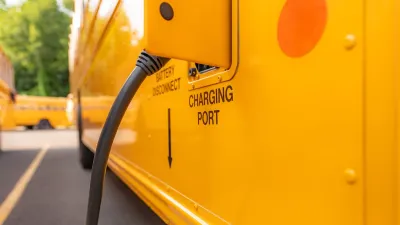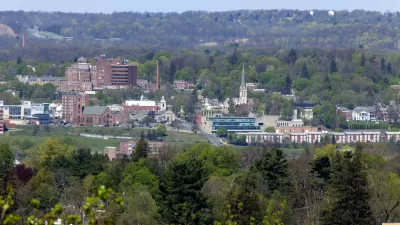California has awarded $500 million to fund 1,000 zero-emission school buses and chargers for educational agencies as part of its effort to reduce pollution, improve student health, and accelerate the transition to clean transportation.

California has awarded $500 million in funding to help school districts and educational agencies purchase 1,000 zero-emission school buses and install associated charging infrastructure, reinforcing the state's national leadership in clean school transportation. Administered by nonprofit CALSTART in partnership with the California Air Resources Board (CARB) and the California Energy Commission (CEC), this initiative targets the communities most impacted by air pollution. Priority was given to rural and underserved districts, with 98 percent of awarded agencies serving low-income or disadvantaged communities. Each grant includes up to $375,000 per bus and up to $95,000 for charging equipment, with the requirement that an old diesel-powered bus be scrapped for every new bus received.
This investment is part of the state’s broader climate and public health strategy, with zero-emission school buses playing a key role in reducing greenhouse gas emissions and protecting children from the harmful effects of diesel exhaust. Studies show that despite accounting for less than 10 percent of a child’s day, school bus commutes can contribute up to 33 percent of their daily exposure to air pollutants. The new buses funded through this round of grants are expected to reduce 18,000 metric tons of greenhouse gases annually — equivalent to removing 4,000 cars from the road each year — and will help California meet its goal of 100 percent zero-emission school bus purchases by 2035 (2045 for rural areas).
This latest round of funding builds on over $1.3 billion already invested by the state, resulting in more than 2,300 zero-emission buses funded and over 1,100 already in operation — the majority located in pollution-burdened communities. The transition not only supports California’s goal of achieving carbon neutrality by 2045 but also demonstrates a scalable model for clean, equitable, and community-focused infrastructure investments across the country.
FULL STORY: California awards $500 million in funding for 1,000 zero-emission school buses

Planetizen Federal Action Tracker
A weekly monitor of how Trump’s orders and actions are impacting planners and planning in America.

Maui's Vacation Rental Debate Turns Ugly
Verbal attacks, misinformation campaigns and fistfights plague a high-stakes debate to convert thousands of vacation rentals into long-term housing.

San Francisco Suspends Traffic Calming Amidst Record Deaths
Citing “a challenging fiscal landscape,” the city will cease the program on the heels of 42 traffic deaths, including 24 pedestrians.

Amtrak Rolls Out New Orleans to Alabama “Mardi Gras” Train
The new service will operate morning and evening departures between Mobile and New Orleans.

The Subversive Car-Free Guide to Trump's Great American Road Trip
Car-free ways to access Chicagoland’s best tourist attractions.

San Antonio and Austin are Fusing Into one Massive Megaregion
The region spanning the two central Texas cities is growing fast, posing challenges for local infrastructure and water supplies.
Urban Design for Planners 1: Software Tools
This six-course series explores essential urban design concepts using open source software and equips planners with the tools they need to participate fully in the urban design process.
Planning for Universal Design
Learn the tools for implementing Universal Design in planning regulations.
Heyer Gruel & Associates PA
JM Goldson LLC
Custer County Colorado
City of Camden Redevelopment Agency
City of Astoria
Transportation Research & Education Center (TREC) at Portland State University
Jefferson Parish Government
Camden Redevelopment Agency
City of Claremont





























